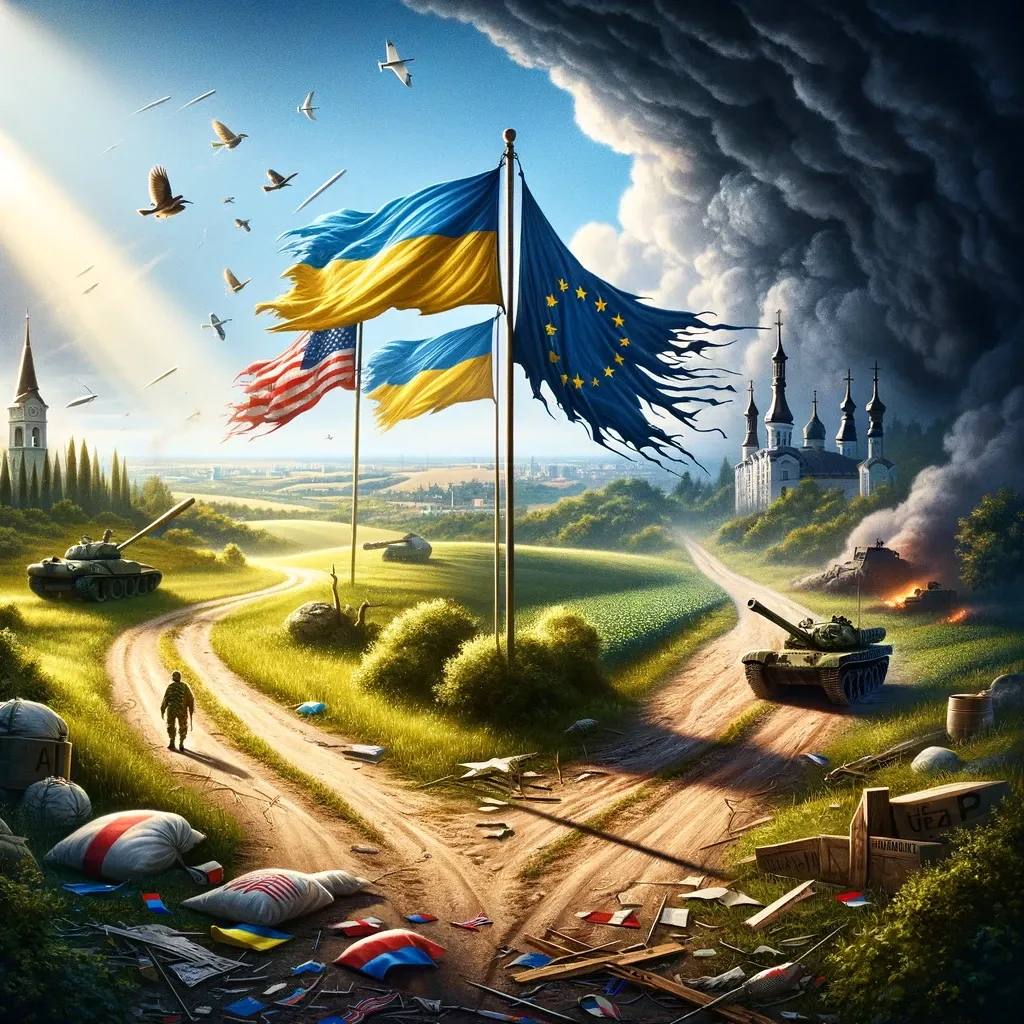Ukraine Aid at a Crossroads: The Complex Dynamics of US and EU Financial Support
As Ukraine continues its defense against Russia's aggressive campaign, concerns are mounting over the sustainability of Western financial support, crucial for the country's resilience. Recent developments have highlighted a complex and challenging scenario, particularly regarding the US and EU funding commitments. US Aid in Limbo The

As Ukraine continues its defense against Russia's aggressive campaign, concerns are mounting over the sustainability of Western financial support, crucial for the country's resilience. Recent developments have highlighted a complex and challenging scenario, particularly regarding the US and EU funding commitments.
US Aid in Limbo
The White House has raised alarms about the impending depletion of funds designated for aiding Ukraine. US Office of Management and Budget Director Shalanda Young, in a communication to the US Congress, warned of the resource scarcity by the end of the year for procuring more weapons and equipment for Ukraine. This situation comes despite the US being Ukraine's largest single-country donor, having contributed over $40 billion in aid since the onset of Russia's invasion in February 2022. However, right-wing congressional Republicans' growing skepticism about allocating more funds poses a significant hurdle, potentially impacting the approval of an additional $61 billion in aid.
EU's Struggle for Consensus
The European Union, simultaneously, is grappling with its internal dynamics to pass a substantial 50 billion euro ($54bn) funding package for Kyiv. A significant challenge emerges from Hungary, led by Prime Minister Viktor Orban, who has shown a pro-Russian stance since Moscow's invasion. Hungary's proposal to cut the EU funding package for Ukraine from €50 billion to €25 billion exemplifies the diverging perspectives within the EU. Moreover, Orban has leveraged Hungary's consent to unfreeze €22 billion in funding for Budapest, which Brussels holds due to rule-of-law concerns.
Implications for Ukraine
The delay in funding and lack of unanimity in the EU, coupled with the funding impasse in the US, raises fears in Kyiv of a waning international support. The ongoing Russian assaults on civilian infrastructure exacerbate Ukraine's vulnerability, especially in the face of an approaching harsh winter. The inability to secure long-term funding and a separate €20 billion facility for weapons purchases could significantly hamper Ukraine's defense capabilities.
The geopolitical complexities and internal political dynamics in both the US and EU present a challenging landscape for continuous and robust support to Ukraine. The situation underscores the need for a cohesive and resolute approach by Western allies to ensure Ukraine's economic stability and defense against Russian aggression. As the year-end approaches, the urgency to resolve these funding challenges becomes ever more critical, with far-reaching implications for Ukraine's future and broader regional stability.




